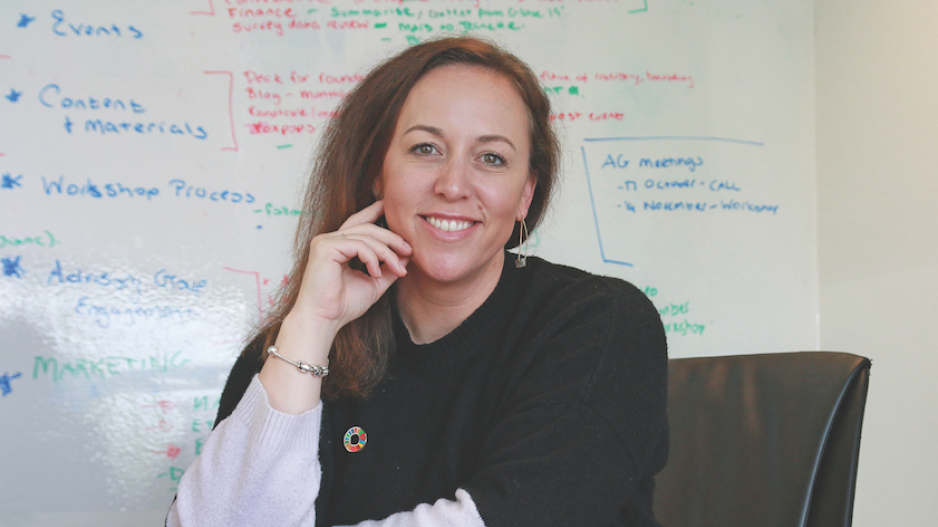B.C. may be as far as 15 to 20 years behind some European jurisdictions in developing a clean-tech cluster, but Jeanette Jackson doesn’t see that as an outright disadvantage.
“The beauty about that is we can learn from their mistakes and their opportunities and how they accelerated building a cluster, and then bring that information back to B.C. so that we can do it more effectively,” said the CEO of the Burnaby-based Foresight Cleantech Accelerator Centre.
Foresight officially launched its B.C. Cleantech Cluster Initiative on September 25 in a bid to cultivate an alliance of local partners, such as educational institutions, startups and enterprise-level companies, to collaborate and develop products.
The Digital Technology Supercluster (DTS) is the most high-profile of these types of initiatives to land in B.C. It has already secured $153 million in funding from Ottawa contingent on participants also contributing funds.
For every $1 from partners, the DTS contributes $0.75.
The clean-tech cluster, meanwhile, is working with initial funding of $350,000 supplied by Vancouver City Savings Credit Union, the province and the federal government as it navigates the first phase of stakeholder engagement.
“The intention is that we will go out for funding, but it will be market-driven programming,” Jackson said. “It will not be programming that’s driven by government.”
To use the DTS as a comparison, the supercluster requires that projects include a minimum of three organizations, at least one of which must be a small business, to work together and develop products.
The intention is to spur economic activity in the province and encourage more collaboration between sometimes-disparate organizations in terms of size and structure.
“What you want to do in a cluster is set the conditions where companies strive, prosper, pursue problems and solutions that are presented to them, and go where the research and innovation impulse takes you,” B.C. Jobs, Trade and Technology Minister Bruce Ralston told Business in Vancouver.
He added that a cluster that doesn’t take the temperature of the market to determine what products will be in demand will have a harder time succeeding in the long run.
“What British Columbia does have is the makings of a really powerful, globally significant clean-tech cluster,” Ralston said.
Twelve Canadian businesses were named among the top 100 clean-tech companies in the world in a January 2019 Cleantech Group report. Of those 12, half are based in B.C.: Axine Water Technologies Inc., Cooledge Lighting Inc., Inventys Thermal Technologies Inc., MineSense Technologies Ltd., Semios and Terramera Inc.
Despite the number of top companies based in the province, Canada has never been great at this kind of industrial policy, according to Matthew Klippenstein, a chemical engineer and clean-energy consultant with Electron Communications.
“I would suspect that a market-driven approach gives the most fruit because then your efforts at least have a better chance of hitting a single, a double or, goodness, a home run than if you’re just creating something and looking for a market for it,” he said.
“The biggest potential isn’t necessarily in forging new industries but [in] helping the very massive industries we already have become cleaner.”
Jackson said after the initial stakeholder engagement, the initiative will move into longer-term programming and funding recommendations, with an update expected at the Globe 2020 forum in February in Vancouver.
“One of the things about clusters is it may require kind of a kick-start of government funding to get leverage going for people to invest, but eventually clusters become naturally sustainable,” she said.
“I’m assuming that these different levels of government will appreciate that if we can do this right … B.C. will be a leader in cluster execution across
Canada.”




